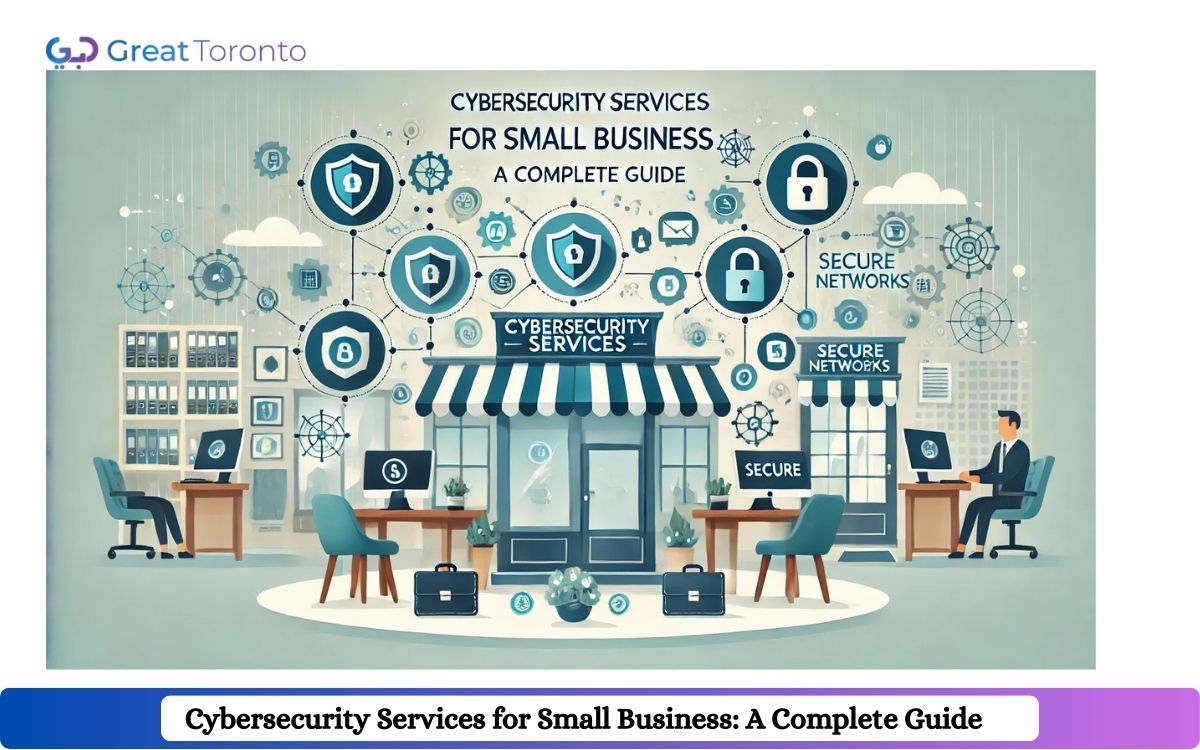Table of Contents
| Sr# | Headings |
|---|---|
| 1 | Introduction |
| 2 | Why Cybersecurity Matters for Small Businesses |
| 3 | What is Cyber Security Consulting? |
| 4 | Key Benefits of Small Business Security Consulting |
| 5 | SMB Network Security Essentials |
| 6 | Managed Security Services for Small Businesses |
| 7 | How to Choose the Right Cyber Security Consultant |
| 8 | Cybersecurity Services for Small Business Options |
| 9 | Small Cyber Security Companies vs. Large Firms |
| 10 | Steps to Implement Cybersecurity in Your Small Business |
| 11 | Cybersecurity Tools for Small Businesses |
| 12 | How Much Does Cybersecurity Consulting Cost? |
| 13 | Common Cyber Threats Faced by Small Businesses |
| 14 | Best Practices for Small Business Cybersecurity |
| 15 | Conclusion |
| 16 | FAQs |
In today’s digital age, small businesses are as vulnerable to cyber threats as large firms. Cybersecurity may seem a big word for tech giants. But, it’s vital for small businesses too. Like a front door lock, cybersecurity protects sensitive data from hackers and malware. So, how can small businesses ensure they’re safe from online threats? This guide is all you need to know about cybersecurity services for small businesses.
Why Cybersecurity Matters for Small Businesses
Cybercriminals often target small businesses. They think they are too small to attract attention. That’s a dangerous misconception. Cyberattacks on small businesses are rising. Hackers know these firms have weak defenses. A data breach can disrupt operations and harm a business’s reputation. It can also cause huge losses.
What is Cyber Security Consulting?
Cybersecurity consulting is a service. Experts check and improve a company’s digital security. For small businesses, security consulting means finding and fixing flaws. It includes suggesting and applying protective measures. A cybersecurity consultant is like a digital bodyguard. They keep your business safe online.
Key Benefits of Small Business Security Consulting
-
Data Protection: Prevents unauthorized access to sensitive information.
-
Cost Savings: Reduces the risk of costly breaches and system downtime.
-
Compliance: Helps businesses meet data protection regulations.
-
Peace of Mind: Allows business owners to focus on operations without security worries.
SMB Network Security Essentials
Network security is a key part of any small business cybersecurity plan. It’s vital to block unauthorized access to networks. This prevents cyber threats from spreading through an organization’s digital systems.
Managed Security Services for Small Businesses
Managed security services are a great option for small businesses. They may lack the resources for a full-time IT team. Managed security services for small businesses do three things: check, update, and protect against new threats. These services ensure a company’s digital safety without requiring extensive in-house expertise.
How to Choose the Right Cybersecurity Consultant
Choosing a cybersecurity consultant is like choosing a doctor. You want someone trustworthy, skilled, and experienced. Here are some tips:
-
Verify Credentials: Look for certifications like CISSP, CISM, or CEH.
-
Ask About Experience: Choose consultants with experience in small business security.
-
Check Reviews and Testimonials: Learn about other clients’ experiences.
-
Understand Their Approach: Ensure they offer personalized strategies, not cookie-cutter solutions.
Cybersecurity Services for Small Business Options
Risk Assessment and Vulnerability Testing
A cybersecurity risk assessment finds weak points in a business’s system. It reveals potential entry points for hackers.
Data Encryption
Encryption protects sensitive data. It converts it into a code. Only authorized users can decode it. For small businesses, encrypting customer data is vital to keep it secure.
Firewalls and Antivirus Protection
Firewalls block access between a business’s internal network and the outside world. Antivirus software detects and removes malware.
Small Cyber Security Companies vs. Large Firms
Small cybersecurity companies often offer a more personalized approach than larger firms. They know the unique needs of small businesses. They provide cybersecurity services tailored to them. A small, specialized team can be more flexible and supportive than a large firm.
Steps to Implement Cybersecurity in Your Small Business
-
Conduct a security audit: identify your current cybersecurity strengths and weaknesses.
-
Educate Employees: Teach staff safe online practices. They should avoid suspicious links and use strong passwords.
-
Implement Multi-Factor Authentication: Use two-step verification to add extra security.
-
Backup Data Regularly: In case of an attack, backups protect your data.
-
Invest in Regular Monitoring: Regular security monitoring can catch threats early.
Cybersecurity Tools for Small Businesses
-
Firewalls: prevent unauthorized access to your network.
-
Antivirus software: detects and removes malware.
-
Password Managers: Store passwords in a secure manner.
-
Backup Solutions: Ensure critical data is stored securely and can be restored if needed.
How Much Does Cybersecurity Consulting Cost?
The cost of cybersecurity consulting for small businesses varies. It depends on the services provided, the business size, and the scope of work. On average, expect to spend a few hundred to several thousand dollars, depending on your needs.
Common Cyber Threats Faced by Small Businesses
-
Phishing Attacks: Fraudulent messages attempting to trick users into revealing information.
-
Malware: Software designed to damage systems or steal information.
-
Ransomware: A type of malware that locks data until a ransom is paid.
-
Data Breaches: Unauthorized access to sensitive information.
Best Practices for Small Business Cybersecurity
-
Update Software Regularly: Keep all systems and applications up to date.
-
Use Strong Passwords: Avoid simple or commonly used passwords.
-
Restrict Access: Limit access to sensitive data and systems to only those who need it.
-
Regularly Backup Data: Backups are essential to recover from an attack.
-
Monitor Systems: Regularly check systems for suspicious activities.
Conclusion
For small businesses, cybersecurity isn’t an option; it’s a necessity. Cybersecurity consultants and managed services make it easier to protect digital assets. cybersecurity services for small business protects your data, reputation, and customer trust.
FAQs
Q: What is the biggest cybersecurity threat to small businesses?
Ans: Phishing attacks and ransomware are common threats that target small businesses.
Q: How often should small businesses update their cybersecurity measures?
Ans: We recommend updates every 6 to 12 months, or when new threats arise.
Q: Is cybersecurity consulting affordable for small businesses?
Ans: Yes, small businesses can find affordable, tailored solutions. There are various options.
Q: How can small businesses benefit from managed security services?
Ans: Managed security services provide monitoring and threat detection. They make security accessible without in-house expertise.
Q: What should small businesses look for in a cybersecurity consultant?
Ans: Look for experience, certifications, and a proven track record in small business cybersecurity.







